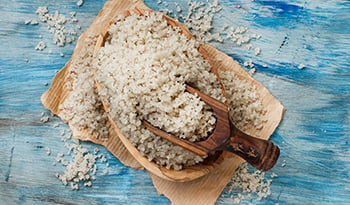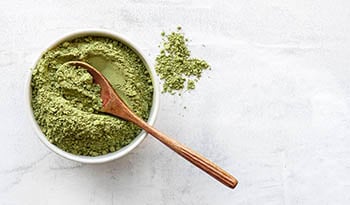Where Kosher Salt Comes From & Why It's Called Kosher
DISCLAIMER:This blog does not intend to provide diagnosis...
- In this article:
- What Is Kosher Salt?
- How Is Kosher Salt Used?

Is kosher salt even kosher?
What Is Kosher Salt?
Kosher salt refers to a coarse large-grained, refined culinary salt (sodium chloride). The name derives from its use in meat koshering according to Jewish customs. This koshering process requires the meat to be soaked in water and then rubbed down and covered with coarse, large-grained salt for an hour to extract the blood, which is forbidden to be consumed by Jewish religious customs.
The larger grains of the kosher salt do not fully dissolve in water like a finer-grained salt would. Hence, kosher salt more effectively draws out the moisture and blood from the meat. The salt is left on the meat for about an hour to absorb as much blood out of the meat as possible before being washed off.
Kosher salt is a type of salt more than it is an official Kosher food. It is, basically, just a coarse, large-grained salt. But since it became so popular among the Jewish communities for its kosher process, it eventually earned the nickname "kosher salt." The rest is history.
For kosher salt to become officially kosher according to Jewish religious laws, it must have on its packaging a kosher certification from a reliable source, such as the OU, OK, KOF-K, Star-K, or CRC. This salt will often be categorized as kosher pareve, meaning it is made from neither meat nor dairy products.
How Is Kosher Salt Used?
Kosher salt is not only used for kosher meat or by the Jewish community. Many cooks use this coarse salt to season various foods, from vegetables to pasta to potatoes. It's easy to grab a pinch of kosher salt when cooking, and it doesn't dissolve as quickly as other salts. It can also be used in marinades, brines or spice rubs, or even for pickling foods.

 By Dr. Michael Murray, N.D.
By Dr. Michael Murray, N.D. 


